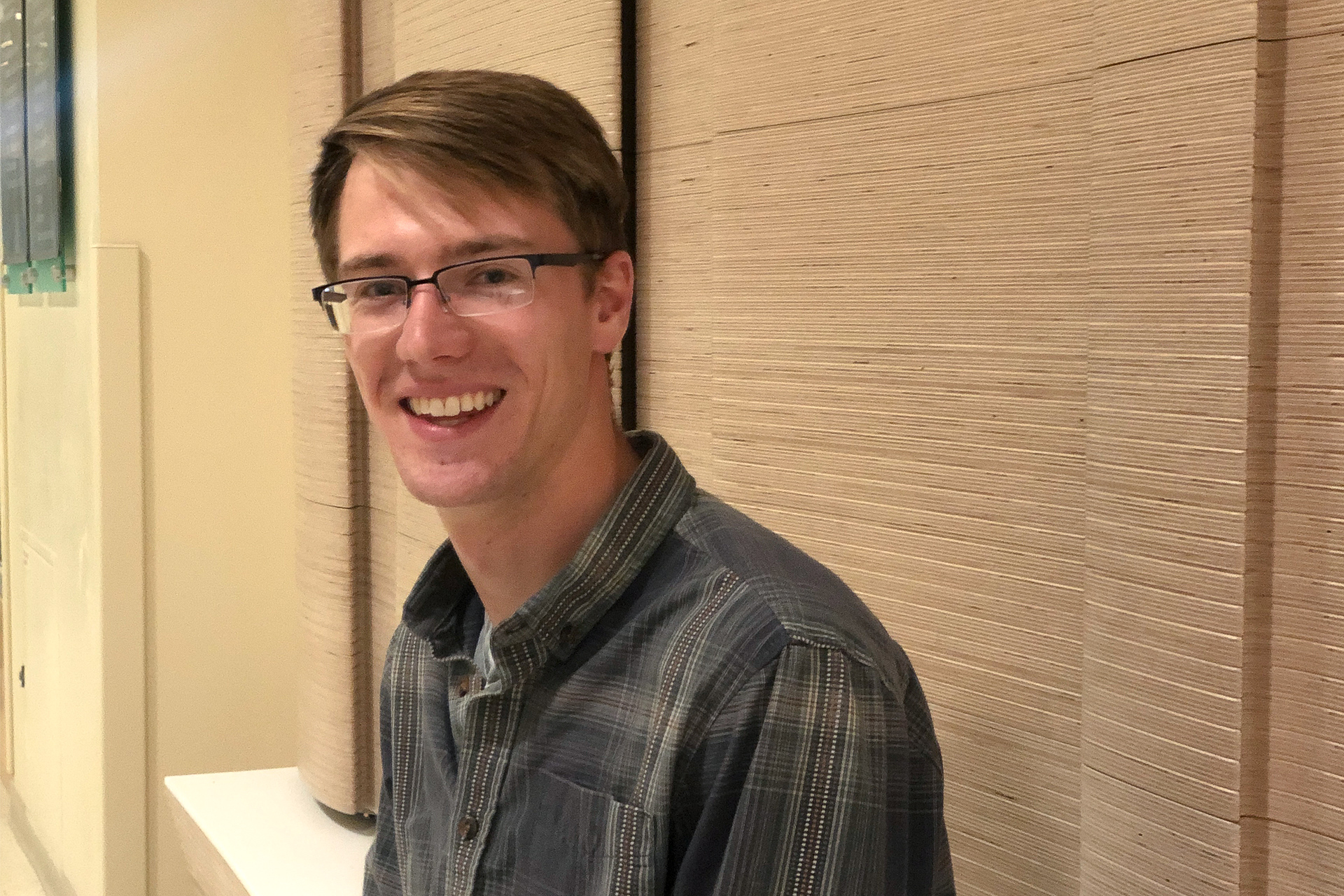
CSU student Paine Lewis will be traveling to Latvia soon to study Russian as part of the prestigious David L. Boren Scholarship program.
Before even starting his first year at Colorado State University, Paine Lewis had spent time in South American countries such as Brazil and Bolivia, helping children caught in a web of violent crime and political corruption.
In Rio de Janeiro, Lewis taught English to orphans living in a cartel-controlled neighborhood, where he said he witnessed open-air drug markets and people carrying guns in broad daylight.
“The whole system was such a tangled knot and so messed up,” said Lewis, a junior from Denver who majors in international studies and Spanish in the College of Liberal Arts. “The police were corrupt; the cartel was corrupt; and the community was just caught in the middle. That really inspired me to start trying to build whatever proficiencies I could to put myself into a government career focused on counter-narcotics.”
Lewis is one step closer after receiving a prestigious David L. Boren Scholarship from the National Security Education Program, a federal initiative designed to help students interested in national security and linguistics.
Lewis, who will soon be traveling to Latvia in January to study Russian through August, is one of only 244 undergraduate students in the country – and one of six students in Colorado – to receive this honor. In 2019, the NSEP, which administers the Boren Awards, received 851 applications from undergraduate students. Lewis is the fourth CSU student to be awarded a Boren since 2001.
Focusing on Russia
As part of the scholarship program, Lewis will be studying Russian in Latvia’s capital of Riga, a coastal city situated where the Daugava River meets the Baltic Sea. There, he will be living with a Latvian host family and studying Russian 25 hours a week.
Lewis’ interest in Russian language, politics and culture stems from his time working at a Bolivian orphanage in Santa Cruz de la Sierra. After returning home, he learned more about Russia’s resurging influence on the region, where the former Soviet Union has promised to aid Bolivia in developing nuclear capability, constructed an anti-narcotics center in Nicaragua, and invested in Venezuela’s struggling oil industry.
“Russia is positioning itself to become a long-term regional force in Latin America,” he said, “while Latin America simultaneously backs away from U.S. influence.”
At CSU, Lewis took Russian classes as well as courses in Spanish and international studies. He developed an appreciation for the language thanks to instructors such as Ludmila Pokatilova, who had deep conversations with him about complex political situations.
“Paine truly demonstrates a talent for the Russian language,” she said. “His academic ability and thoughtful engagement are great strengths of his that will enable him to reap the full benefits of this experience.”

Lewis will be studying in Riga, Latvia.
Since 1994, more than 6,000 students have received Boren Awards in the highly competitive program, representing an important pool of individuals wishing to work in the federal national security area. Many alumni go on to contribute to critical missions throughout the federal government, according to the NSEP.
In a release announcing the 2019 Boren recipients, former U.S. Sen. David Boren, the principal author of the legislation that created the National Security Education Program and the scholarships and fellowships that bear his name, said: “To continue to play a leadership role in the world, it is vital that America’s future leaders have a deep understanding of the rest of the world. As we seek to lead through partnerships, understanding of other cultures and languages is absolutely essential.”
After graduation
Lewis, who graduates in December 2020, said CSU has played an important role in helping him accelerate his career goals.
“Without the resources of CSU, I don’t think I would have been able to get the scholarship,” he said. “For one thing, the World Languages Department has helped me developed my Spanish and Russian.”
Lewis added that he is excited to be heading to Latvia soon, but he said he will miss his wife and his dog. He said he might look into an internship while there, but it all depends on the student visa process.
Applying for scholarships
Current CSU undergraduate and graduate students interested in applying can contact Mary Swanson at mary.swanson@colostate.edu.
Either way, he will be able to focus on improving his Russian.
“If I didn’t have this immersive experience, I wouldn’t be able to achieve the proficiently in Russian that I need,” he said. “It’s a huge opportunity, and I feel really lucky to have it.”